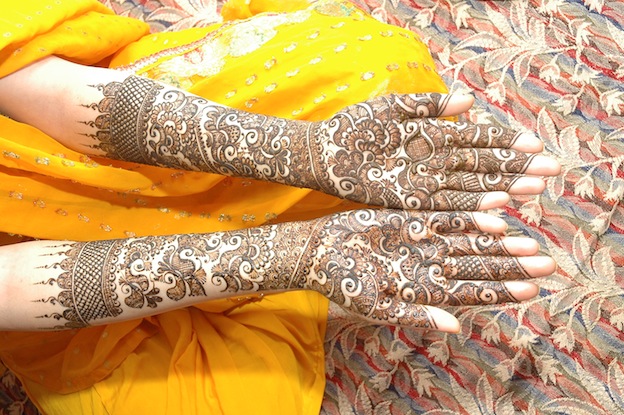SingaporeMotherhood | Parenting
May 2015
Coping as a Lower-Income (& soon-to-be) Single Mother in Singapore

“Before I got this job, we depended on my children’s bursaries. With these we managed to survive for one month while my husband was not working.”
Madam Ainiah wants change, and she’s making plans for it. Having gone through divorce, abuse, self-hurt and mutilation, this mother of five is ready for a better life.
She seems a little tired sometimes, but her fatigue is justified. With one divorce (and another pending), two husbands, five children of her own and three step-children, Madam Ainiah’s life so far reads like an adventure in a fantasy story.
The 35-year-old has just returned to her mother’s home after the midnight shift (11pm to 7am) as a floater (a cleaner) at a hotel in the east, a job she started two days ago. She earns about $50 per day here.
[banner][/banner]
Her sleek, waist-long hair is still damp from a shower. She is lying on the flowery fabric cushion of a rattan sofa when I arrive. This is her rest time before she heads out for the hour-long bus ride across the island to fetch her youngest child home from school.
Working red-eye hours enables Madam Ainiah to be at home for her children during the day, and to take on freelance domestic cleaning jobs to supplement her income.
Her first husband, the father of her first two children, is out of the picture.
She is filing (for the fourth and final time, she says) for divorce from her current husband. They met on a bus while she was pregnant with her second child, carrying her toddler in her arms. They struck up a conversation, discovered that they were from the same (now defunct) primary school, and became friends.
Throughout her second pregnancy, he, then married as well, offered companionship and support. Eventually, they divorced their first spouses and were married 11 years ago after a four-year courtship. They have three children.
THINGS FALL APART
The rift in the relationship started soon after marriage. She sought solace in the arms of other men, seven times. They quarrelled frequently, and violently. Then last year he too, had a affair.
“My first three children saw a lot of family violence when they were young. And they were also very harshly punished by my husband. I have a PPO (Personal Protection Order) from him, for three children, and for myself, for life. There’s not so much hitting now because the kids are growing up and they get into less trouble. Also, I am the contact person for their school. So I am the one who is called if anything happens, and I try as much as possible to cover things up. I don’t tell my husband because I know what will happen. I try not to let my husband raise his hand.”
After Madam Ainiah’s husband was laid off in January this year, things got worse. She uprooted the children from their family home and moved to her mother’s house across the island. “It’s hard for the children because they have to wake up earlier and set off for school an hour earlier,” says Madam Ainiah.
“I moved out because of our frequent quarrels. Also, my daughter and my son don’t want to be home if I am not at home. Previously when we were still staying together in the same house and I was doing domestic cleaning, if they finished school before I was done, they would either wait outside the house (that I was cleaning) for me to finish work, or hang out with their friends in a mall while waiting for me. If I was not at home, and my husband was, they would not go home.”
Madam Ainiah’s mother’s four-room flat in the east now houses nine people: Madam Ainiah and four of her children, her mother, and her three siblings. Madam Ainiah is currently waiting for placement in a shelter home near to her younger children’s school.
HELP FROM OUTSIDE
Subsidies, bursaries, and grants such as the NTUC U-Stretch vouchers have helped financially.
“I managed to apply for the U-Stretch vouchers from NTUC in 2012 when I was working with a unionised cleaning company at the airport. Only unionised members can apply for the U-Stretch vouchers. These helped me with my $400 a month marketing expenses.
The Back-To-School scheme gave us $125 worth of vouchers per child. We used them at Bata and Popular Bookstore to buy school shoes and school books,” Madam Ainiah shares.
Help comes from other areas as well. Four children have free, twice- or thrice-a-week tuition in Maths, English, and Science (for the P6 child) under SINDA, the Singapore Indian Development Associaton. “Their tuition fees, tuition books, and their registration fees were all waived,” Madam Ainiah says.
“The biggest expenses are transportation and pocket money. Even though they get MOE funding it’s still not enough because they have extra lessons. My eldest has coupons from the school, $40 a month. But that is not enough. I give them $5 a day and more on days when they have CCA (co-curricular activities). I do not want them to get hungry after school or on the way home from school,” Madam Ainiah says.
Under the Ministry of Education’s Financial Assistance Scheme, the children get daily pocket money — $5 for those in secondary school, $3 for primary school-going children — though their EZ-Link cards. They have to go to the school office to get the top-ups each day, Madam Ainiah explains. The scheme also offers bursaries (for a maximum of three children per household) for her older children.
The family also receives help from Mendaki (Council for the Development of Singapore Malay/Muslim Community) which applied for financial assistance from MUIS (Islamic Religious Council of Singapore). “Because of this I have to put the children in religious classes during the weekend. I myself have to go for religious classes too.”
When her youngest child was in preschool, the Bright Horizons Fund set up by NTUC First Campus Co-operative Limited helped with childcare fees. This fund subsidises up to 75 per cent of nett fees, capped at $130 a month for Singaporean Union members.
FINDING HER OWN WAY
While she receives financial help, Madam Ainiah says it is not always enough. The vouchers are a one-off. Her current husband has just started on a new job as a cleaner, but they are on acrimonious terms. Her ex-husband has not provided alimony or childcare fees.
With a PSLE certificate (she dropped out of school at secondary three) Madam Ainiah has difficulty finding a higher-paying job. To supplement her income, she crafts accessories like brooches, headbands, hairpins, and corsages to sell at neighbourhood fairs and for Malay weddings. She is also a freelance henna artist.
Recently, she started baking, and decorating cookie containers to sell: “If I do not stop, it takes about three days to make a set of six”.
Soon she will take on two volunteer roles: as a Pioneer Generation Package Ambassador with the Grassroots Committee, to go house-to-house and explain more about the scheme to its beneficiaries, and as a crafts instructor at the Community Club to teach stay-at-home-mothers how to craft so that they can start their own home businesses.
As we are talking, a call comes in from a social worker who offers another avenue of help. When their conversion is over, Madam Ainiah hangs up, visibly relieved. Her burden may soon be lighter.
This article is part of a series of labour movement initiatives brought to you by NTUC.
All content from this article, including images, cannot be reproduced without credits or written permission from SingaporeMotherhood.
Follow us on Facebook, Instagram, and Telegram for the latest article and promotion updates.







